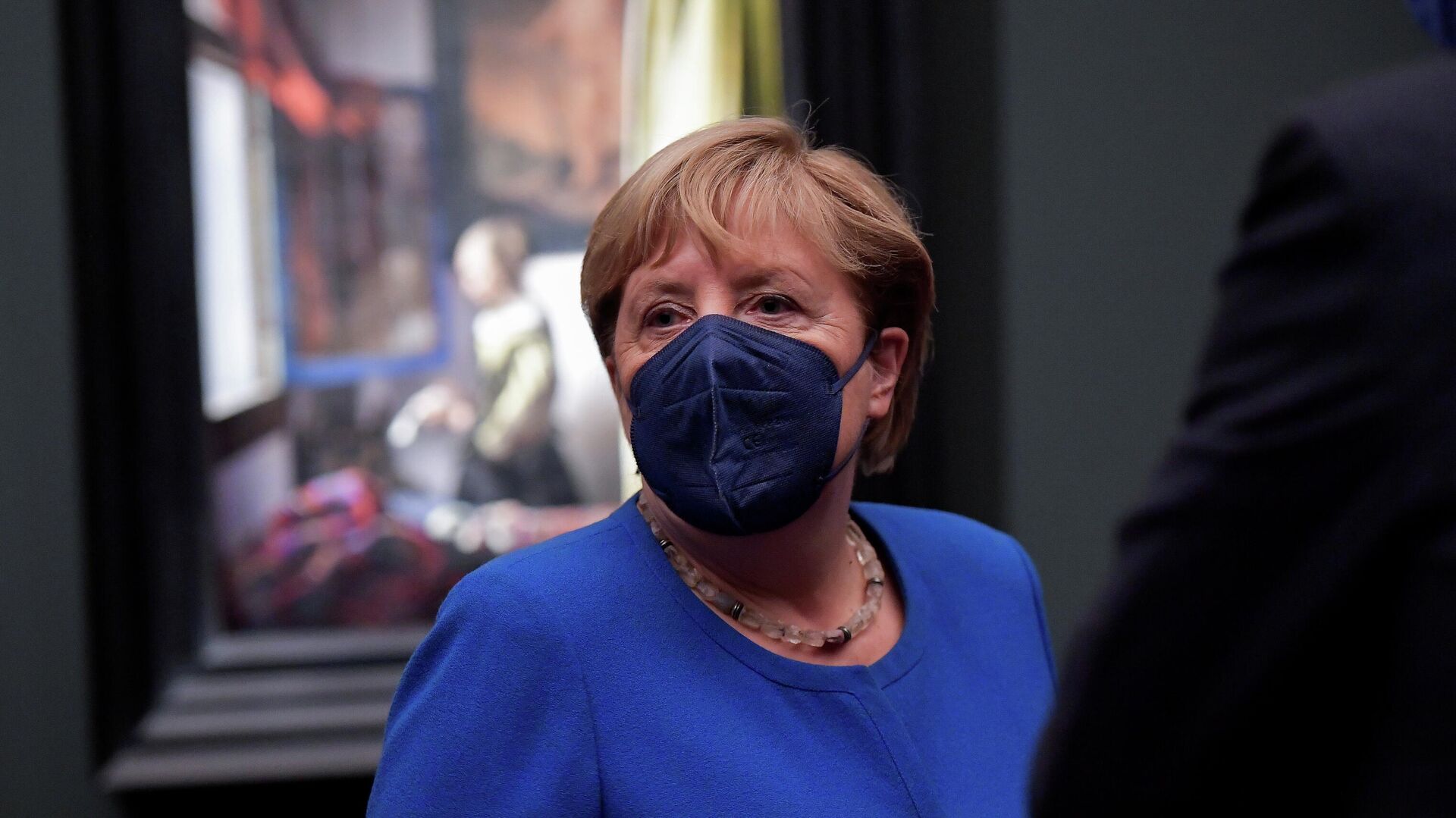Merkel Admits Her Bloc Knew It Wouldn’t Get An ‘Automatic’ Win ‘Without Effort After 16 Years’

© REUTERS / MATTHIAS RIETSCHEL
Subscribe
Elections to the Bundestag will be held in Germany soon and the 16-year era of Angela Merkel as its chancellor is coming to an end. Ratings are showing alarming results for her centre-right bloc of the Christian Democratic Union and Christian Social Union (CDU/CSU), exceeded by Social Democrats.
Chancellor Angela Merkel admitted on Thursday that her party has always known that it would take effort to stay in power after her long stewardship.
When asked at a press-conference about her concerns over the CDU’s poor ratings, she noted that “we are in the middle of the election campaign and I can see that (it is) really fighting.”
“It was clear to everyone in the CDU and CSU that we wouldn't get into the chancellery again automatically and without effort after 16 years,” she said.
In a recent interview, Merkel stressed that, as head of government, she kept as far away from party-political issues as possible after resigning from the presidency of the CDU in 2018. The four-term prime minister has shown undeniable support for her colleague, CDU party and election candidate Armin Laschet.
Speaking during what is said to be her last address to the Bundestag on Tuesday, she urged Germans to vote for Laschet, saying that he is the one to form “a moderate government that will lead our country into the future”.
“What is at stake are real economic and tax-related decisions that will determine the future of our country, the number of jobs,” she noted.
A recent drop in the center-right’s ratings, and Laschet’s in particular, was in part explained by a recent scandal following cameras showing him laughing with other politicians while visiting a flood-affected areas.
CDU, once leader of the race, has dropped in the ratings to 21 percent, giving way to the most likely Merkel successor, Vice-Chancellor Olaf Scholz, from the Social Democratic Party.
Sonntagsfrage zur Bundestagswahl • Kantar/FOCUS: SPD 25 % | CDU/CSU 21 % | GRÜNE 17 % | AfD 12 % | FDP 12 % | DIE LINKE 6 % | Sonstige 7 %
— Wahlrecht.de (@Wahlrecht_de) September 9, 2021
➤ Übersicht: https://t.co/MO5RyMFkPu
➤ Verlauf: https://t.co/TUmm9tbPvs#btw21 #btw2021 pic.twitter.com/MVCXxUNoRY
Scholz won the first televised debate, according to the results of a poll conducted by the Forsa Institute, in which 36 percent of respondents named him the winner, as second place with 30 percent went to the Green Party's Annalena Baerbock, and 25 percent to Laschet.
The historic parliamentary elections in Germany will be held on 26 September. The winning party will have the opportunity to establish a chancellor and form a government, most likely in coalition with other political groups.
